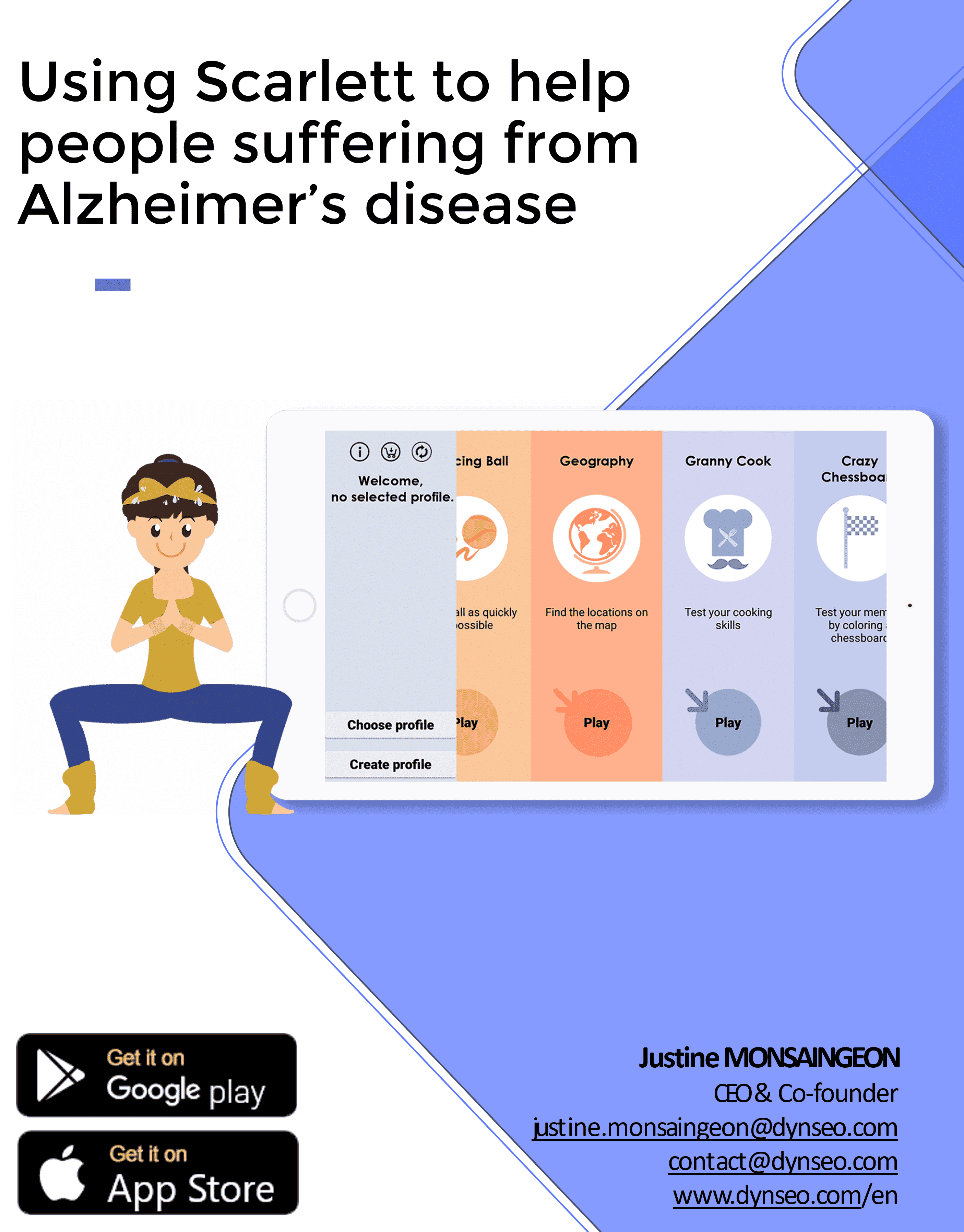Alzheimer’s disease is a progressive neurological disorder that primarily affects memory, thinking, and behavior. As we navigate through the complexities of this condition, we come to understand that it is not merely a matter of forgetfulness; it is a profound alteration in the way individuals perceive and interact with the world around them. The disease typically begins with mild memory loss, which can escalate to more severe cognitive impairments, ultimately impacting daily functioning and independence.
For those of us who have witnessed the effects of Alzheimer’s on loved ones, the emotional toll can be overwhelming. We often find ourselves grappling with feelings of helplessness as we watch someone we care about slowly lose their grasp on cherished memories and familiar routines. Memory loss in Alzheimer’s patients is not uniform; it varies from person to person.
Some may struggle to recall recent events, while others may find it challenging to recognize familiar faces or places. This variability can make it difficult for caregivers and family members to provide appropriate support. As we delve deeper into the intricacies of memory loss associated with Alzheimer’s, we recognize the importance of understanding the underlying mechanisms of the disease.
The accumulation of amyloid plaques and tau tangles in the brain disrupts communication between neurons, leading to cognitive decline. This biological process serves as a reminder of the fragility of memory and the need for innovative approaches to care that can help maintain cognitive function for as long as possible.
The Role of Speech Therapy in Alzheimer’s Care
Speech therapy plays a crucial role in the care of individuals with Alzheimer’s disease, focusing on enhancing communication skills and preserving cognitive function. As we engage with speech therapists, we learn that their expertise extends beyond mere verbal communication; they also address cognitive-communication deficits that often accompany memory loss. Through tailored interventions, speech therapists help patients articulate their thoughts, improve their comprehension, and navigate social interactions more effectively.
This holistic approach not only fosters better communication but also enhances the overall quality of life for those affected by Alzheimer’s. Moreover, speech therapy can serve as a vital tool for caregivers and family members who often feel at a loss when trying to connect with their loved ones. By equipping caregivers with strategies to facilitate communication, speech therapists empower us to engage meaningfully with individuals living with Alzheimer’s.
Techniques such as using simple language, maintaining eye contact, and employing visual aids can significantly improve interactions. As we witness the positive impact of these strategies, we become more adept at fostering connections that transcend the barriers imposed by memory loss, ultimately enriching our relationships with those we care for.
Introduction to Memory Apps for Alzheimer’s

In recent years, technology has emerged as a powerful ally in the fight against cognitive decline associated with Alzheimer’s disease. Memory apps designed specifically for seniors have gained traction as valuable tools for enhancing cognitive function and promoting engagement. One such app is Scarlett, which offers a range of brain games tailored to the unique needs of older adults.
As we explore the features and benefits of these apps, we begin to appreciate how they can complement traditional therapeutic approaches, providing an interactive platform for cognitive stimulation. Scarlett is designed with user-friendly interfaces and engaging content that captures the attention of seniors while challenging their cognitive abilities. The app includes various activities that target memory recall, problem-solving skills, and attention span—all essential components in managing Alzheimer’s symptoms.
By incorporating technology into our caregiving strategies, we open up new avenues for engagement and support that can make a significant difference in the lives of those living with Alzheimer’s. As we embrace these innovations, we find ourselves better equipped to provide meaningful care that resonates with our loved ones.
Benefits of Using Memory Apps in Speech Therapy
Incorporating memory apps into speech therapy sessions can be an effective way to enhance cognitive rehabilitation for patients, particularly those recovering from neurological conditions or brain injuries. To ensure the best outcomes, it is essential to thoughtfully plan and execute the use of these apps in a way that complements traditional therapeutic techniques. Below are some helpful tips for integrating memory apps into speech therapy:
1. Gradual Introduction to the App
Introducing a memory app gradually is a key strategy to help patients become comfortable with the technology. This allows them to familiarize themselves with the app’s interface and understand how it functions.
- Start Simple: Begin with basic memory exercises before progressing to more challenging tasks.
- Encourage Exploration: Allow patients to explore the app’s features at their own pace, guiding them through initial tasks and addressing any questions that arise.
- Assess Comfort Levels: Pay attention to the patient’s comfort with the app and adjust accordingly to ensure they feel confident and capable.
This gradual introduction helps prevent feelings of frustration and increases the likelihood of consistent engagement.
2. Foster Open Communication
As patients interact with the memory app, it’s important to encourage open communication about their experience.
- Ask for Feedback: Encourage patients to share their thoughts and feelings about the app, whether they find it challenging or enjoyable.
- Address Concerns: If patients feel frustrated or discouraged, address their concerns and offer reassurance.
- Validate Emotions: Acknowledge any difficulties patients may encounter and celebrate their efforts, reinforcing the idea that challenges are part of the learning process.
Open communication not only helps gauge the patient’s comfort level but also allows for a more personalized therapy approach.
3. Create a Supportive Environment
The therapeutic environment plays a crucial role in optimizing the effectiveness of memory apps.
- Minimize Distractions: Ensure that the therapy space is free from distractions to help patients focus on the exercises within the app.
- Positive Reinforcement: Offer praise and positive reinforcement when patients complete tasks or show improvement, regardless of how small the victory may seem.
- Celebrate Achievements: Recognize milestones, such as recalling a memory or completing a specific level, to boost confidence and motivation.
A supportive and encouraging environment will foster a sense of achievement and help patients stay motivated throughout their sessions.
4. Integrate App Content with Traditional Therapy
Memory apps can be even more effective when their content is incorporated into traditional therapeutic techniques.
- Link App Activities to Real-Life Scenarios: After completing an exercise in the app, discuss how the skills practiced can be applied in real-world situations.
- Reinforce Learning: Encourage patients to recall what they practiced in the app and apply it during speech therapy exercises, such as word recall or conversation practice.
- Review Progress Together: Regularly track progress within the app and discuss improvements or areas that need further attention.
By combining the digital platform with face-to-face therapy, we create a balanced and comprehensive approach to memory rehabilitation.
5. Ensure Regular Use and Consistency
Consistency is key when incorporating memory apps into speech therapy.
- Set a Schedule: Establish a consistent schedule for app-based exercises so that patients can develop a routine.
- Daily Practice: Encourage patients to practice regularly, even outside of formal therapy sessions, to reinforce memory retention and improve cognitive function.
- Adjust Based on Progress: Tailor the frequency and difficulty of app activities based on the patient’s progress, ensuring that exercises are appropriately challenging.
Regular use of the app helps patients build momentum and stay engaged in their rehabilitation process.
Alzheimer’s care.
Features to Look for in Memory Apps for Alzheimer’s
When selecting memory apps for individuals with Alzheimer’s, it is essential to consider specific features that enhance usability and effectiveness. First and foremost, user-friendliness is paramount; the app should have an intuitive interface that allows seniors to navigate easily without frustration. As we explore various options, we prioritize apps that offer clear instructions and minimal distractions, ensuring that users can focus on the tasks at hand without feeling overwhelmed.
Another critical feature to look for is customization options that allow caregivers or therapists to tailor activities based on individual preferences and cognitive abilities. Apps like Scarlett offer a range of activities that can be adjusted in difficulty, catering to users at different stages of Alzheimer’s progression. Additionally, incorporating familiar themes or personal memories into the app’s content can create a more meaningful experience for users.
By selecting memory apps that prioritize these features, we can enhance engagement and maximize the therapeutic benefits for individuals living with Alzheimer’s.
Tips for Incorporating Memory Apps into Speech Therapy Sessions

Incorporating memory apps into speech therapy sessions requires thoughtful planning and execution to ensure optimal outcomes. One effective strategy is to introduce the app gradually during therapy sessions, allowing patients to become familiar with its features before diving into more complex activities. As we guide individuals through their initial interactions with the app, we encourage them to express their thoughts and feelings about the experience, fostering open communication that enhances their engagement.
Moreover, it is essential to create a supportive environment during app-based activities. We can achieve this by minimizing distractions and providing positive reinforcement throughout the session. Celebrating small victories—such as completing a level or recalling a memory—can boost confidence and motivation among patients.
Additionally, integrating discussions about the content encountered within the app can further reinforce learning and retention. By weaving together technology and traditional therapeutic techniques, we create a comprehensive approach that maximizes the benefits of both modalities.
Case Studies: Success Stories of Using Memory Apps in Speech Therapy
As we delve into real-life case studies showcasing the success of memory apps in speech therapy for Alzheimer’s patients, we are inspired by the transformative impact these tools can have on individuals’ lives. One notable example involves a 75-year-old woman named Margaret who had been struggling with severe memory loss due to Alzheimer’s disease. After incorporating Scarlett into her therapy sessions, her speech therapist observed remarkable improvements in her ability to recall personal memories and engage in conversations about her past experiences.
The app’s interactive nature not only stimulated her cognitive function but also reignited her passion for storytelling—a cherished activity she had long abandoned. Another compelling case involves a group therapy setting where multiple patients utilized memory apps during sessions led by a speech therapist. The therapist noted that participants became more engaged and communicative when using the app compared to traditional methods alone.
Through collaborative gameplay and shared experiences within the app, patients formed connections with one another, fostering a sense of community that enhanced their overall well-being. These success stories serve as powerful reminders of how technology can bridge gaps in communication and connection for individuals living with Alzheimer’s disease.
Future Developments and Considerations for Memory Apps in Alzheimer’s Care
As we look toward the future of memory apps in Alzheimer’s care, several exciting developments are on the horizon that promise to enhance their effectiveness further. Advances in artificial intelligence (AI) may enable apps to adapt dynamically to users’ cognitive abilities over time, providing personalized challenges that evolve alongside their needs. This level of customization could significantly improve engagement and outcomes for individuals living with Alzheimer’s as they navigate their unique journeys through cognitive decline.
However, as we embrace these technological advancements, it is crucial to remain mindful of ethical considerations surrounding data privacy and security. Ensuring that users’ personal information remains protected while utilizing these apps will be paramount as we move forward in this digital age. Additionally, ongoing research into the efficacy of memory apps will be essential in validating their role within therapeutic frameworks for Alzheimer’s care.
By prioritizing both innovation and ethical responsibility, we can harness the full potential of memory apps like Scarlett while ensuring they serve as valuable tools in enhancing the lives of those affected by this challenging condition.
For those interested in cognitive enhancement and therapy tools, particularly in the context of Alzheimer’s disease, it’s beneficial to explore various resources that provide insights and practical applications. One such resource is an article that discusses sensory activities in nursing homes. This article is particularly relevant as it explores how sensory activities can be integrated into the care of elderly individuals, including those with Alzheimer’s, to stimulate their senses and enhance cognitive function. This can be complementary to using memory apps in speech therapy sessions, offering a holistic approach to cognitive care and therapy.



